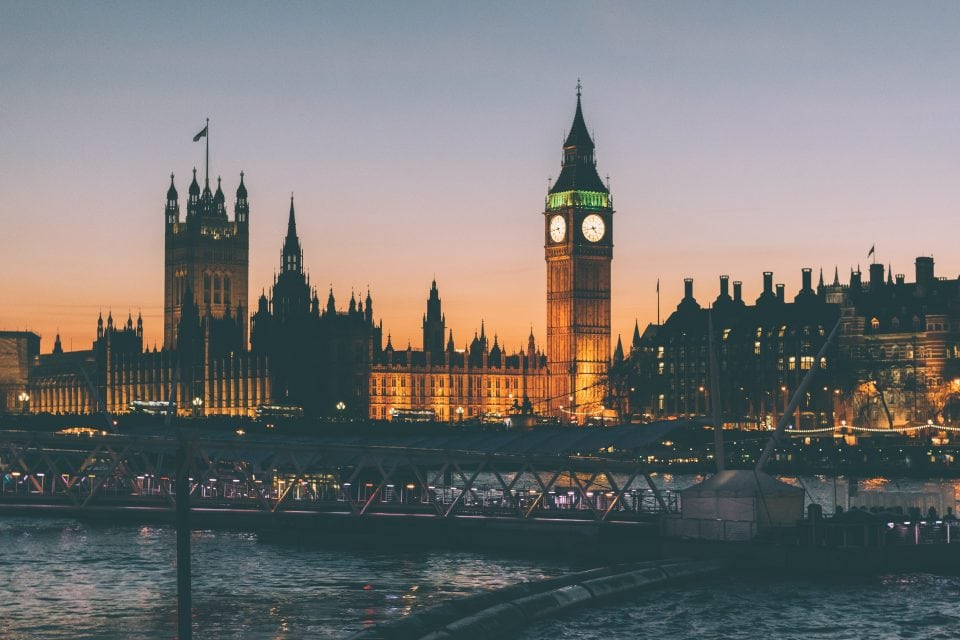Blog Post by Irina von Wiese, former LibDem MEP
London Calling is the European Liberal Forum’s column aimed at bridging the Channel.
That Brexit would damage the UK economy was never in doubt. What has taken people by surprise is where it has hit first, and hardest. After just three weeks of juggling the new reality outside the world’s biggest trading bloc, some keen Brexiteers had a rude awakening.
Firstly, fishermen. Cited many times by Johnson and his fellow Brexiteers as avantgarde in the quest for ‘sovereignty’ (Britannia Rule the Waves!), the UK fishing industry has been the darling of pro-Brexit advocates. British fishermen were told they would re-gain territorial fishing rights in the North Sea and, thanks to the last-minute Trade and Cooperation Agreement (TCA), be able to sell their herring tariff-free to those EU consumers who prefer it to their local cod (eaten, in turn, by British Fish&Chips lovers). On January 1, they discovered that they had gained only a small fraction of the promised fishing rights and – even without tariffs – lost their biggest export market. And few of their local customers were willing to switch to herring.
What happened?
It turns out that what had been feared as a consequence of a ‘No Deal’ Brexit is, in fact, a consequence of any Brexit. The TCA may prevent tariffs, but it does not prevent the appearance of non-tariff barriers: endless paperwork, certificates of origin, soaring transport costs. Exporters of agricultural products and fish, faced with additional requirements of lengthy health certificates, are hardest hit.
Like most consequences of Brexit, this was entirely predictable. When Theresa May, in 2017, decided to interpret Brexit as leaving the EU Single Market as well as the Customs Union, it was clear that even a comprehensive Free Trade Agreement (of which the TCA falls short) would not help. Pro-European campaigners, however, were dismissed as scaremongers, and Brexiteers continued to promise a brave new world of global free trade and endless blue water full of fish. But the line-up of free trade agreements didn’t materialise, and the fish is now rotting in English warehouses. The owner of one of Devon’s largest fish exporters said he ‘was brainwashed by Brexiteers’ and regretted voting leave after his business faces ruin. Scottish shellfish exporters drove dozens of large lorries through central London to protest against disruptions and delays in the export of fresh – and then no longer fresh – crabs and lobsters. One truck was emblazoned with the words “Brexit Carnage”.
And not only fishermen are hit: Cheese makers in Cheshire reported losing 20 percent of their trade overnight due to Brexit. Not tariffs, but the need to provide a £180 health certificate on retail orders to consumers in the EU – including personal gift packs worth a small fraction of that amount – brought their business to its knees.
In fact, all UK companies hoping to continue direct sales to EU consumers face the same problems: small farmers, online retailers, courier companies who are refusing to take packages with animal or food originated content. Freight traffic between Britain and the EU is down almost a third.
Those who are able to do so, now consider shifting production from the UK to the EU – providing employment and tax revenues to EU countries rather than the UK. Not what was promised to Leave voters in the 2016 referendum.
All this, it should be noted, has happened in the first three weeks after the end of the transition period, and in the midst of the Covid pandemic, when free movement of people is a distant dream for different reasons. Once people will be allowed to travel again, the TCA may prove similarly unhelpful: whether business visitors are allowed to provide services, whether newly arrived doctors’ qualifications will be recognised, what visa will be required for longer term visits and how much tourists on either side of the Channel will have to pay for mobile call roaming, all remains to be seen. What is clear is that free movement ends: tourists can stay visa-free for no longer than 90 days, and are not allowed to do any paid work.
This leaves another group of key British exporters out in the cold: UK musicians fear they can no longer accept paid gigs in the EU (except Ireland, which retains its ‘common travel area’ with the UK). Despite endless negotiations, the TCA fails to provide EU-wide rules – instead, there is a bewildering jigsaw puzzle of 26 different sets of rules in different Member States. Multi-country touring will require expensive and complex strategic planning.
Dominic Raab, the UK Foreign Secretary, claimed last week that export disruptions were just “teething problems”. This, of course, is nonsense: the problems outlined above, whether they are caused by extra bureaucracy, lack of mutual recognition of qualifications, or restrictions on the freedom of movement, are systemic and necessary consequences of the loss of the customs union and single market with our closest trading partner.
Three weeks in, Brexit has proved to be everything British politicians predicted – those who fought against it.
